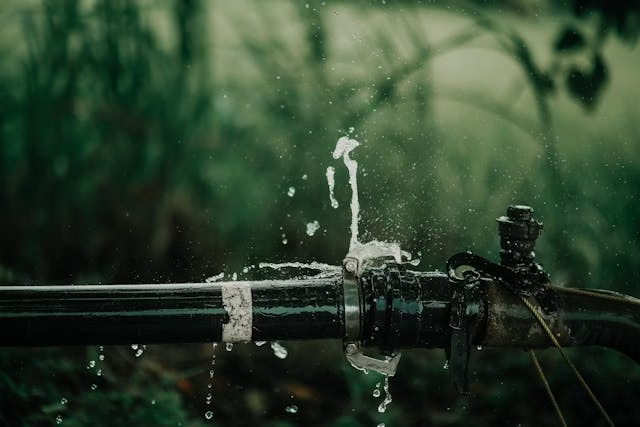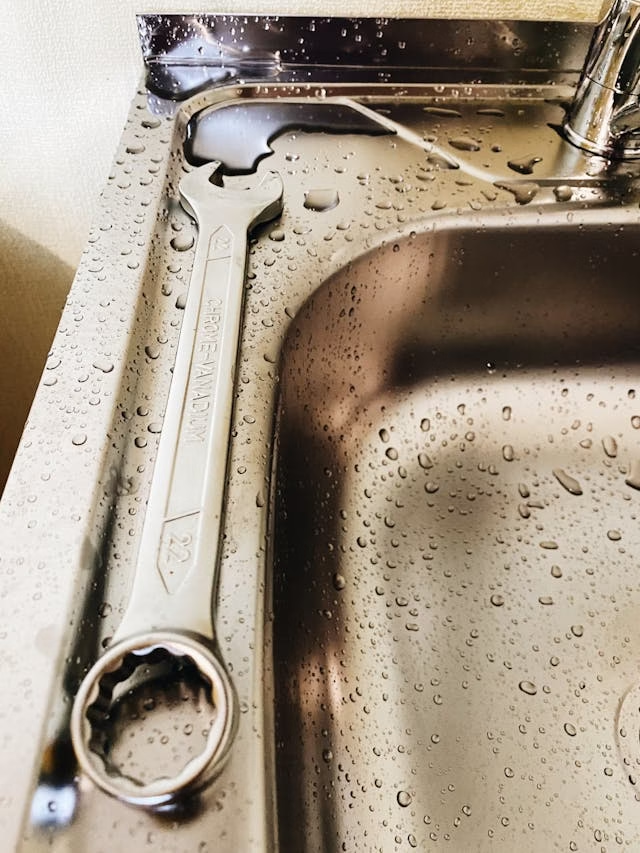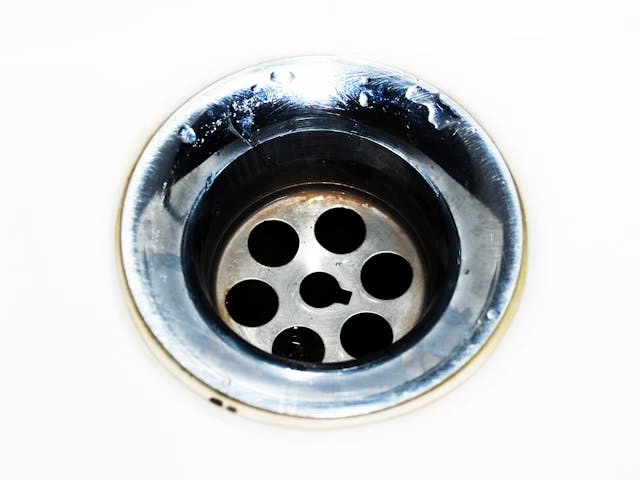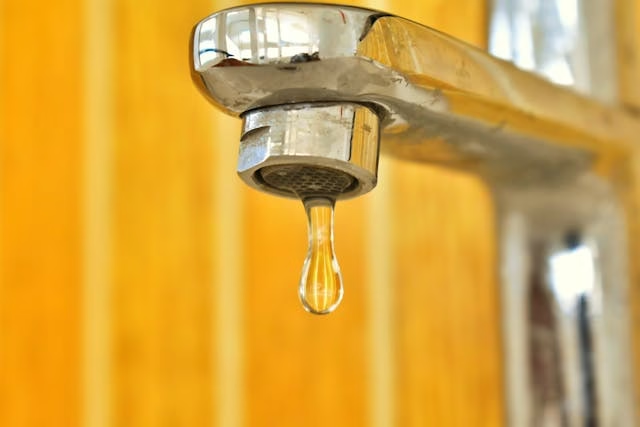When a plumbing emergency strikes, it can disrupt your daily life and potentially cause costly damage to your home. For Canadian homeowners, being prepared with an emergency plumbing checklist is crucial to addressing issues quickly and efficiently. Whether it’s a burst pipe during a frigid winter or a sudden drain blockage, knowing what to do can save time, money, and stress.
This guide outlines a comprehensive list to help you act swiftly during plumbing crises. And remember, for professional assistance, you can always rely on Pure Plumbing Solutions to resolve your issues promptly and effectively.
Why You Need an Emergency Plumbing Checklist
As we all know, an emergency can occur at any time, and being unprepared often worsens the situation, especially if it involves pipes you’ve never even noticed before. With a checklist, you can:
- Minimize property damage.
- Address minor issues before they escalate.
- Communicate effectively with a professional plumber when needed.

Setting Your Checklist Up
Since you may be away on holidays and having someone look after your house, it’s smart to have a binder that contains all your emergency information, including for your plumbing. Put it somewhere safe
Essential Items for Your Emergency Plumbing Checklist
1. Locate Your Main Water Shut-Off Valve
The first step in any plumbing emergency is to stop the water flow. Find your home’s main water shut-off valve and ensure everyone in the household knows its location. Typically, this valve is located in the basement, crawlspace, or near the water meter. Make sure to write this down in detail if it is not an easy find.
2. Know How to Shut Off Appliances
In addition to the main water valve, familiarize yourself with the shut-off valves for individual appliances. Add this information to your Emergency Plumbing Checklist. Examples of these appliances are:
- Toilets
- Sinks
- Washing machines
- Dishwashers
This can help isolate the problem without disrupting the water supply to the entire house.
3. Have a Basic Plumbing Toolkit
A well-stocked plumbing toolkit can help you address minor issues quickly. Your Emergency Plumbing Checklist should include these essentials:
- Adjustable wrench
- Plunger (cup and flange types)
- Pipe wrench
- Plumber’s tape
- Screwdrivers (flathead and Phillips)
- Bucket
- Towels or rags
In your binder make sure to note where you store this toolkit.
4. Inspect and Maintain Your Pipes
Regularly check your pipes for signs of wear, corrosion, or leaks. Pay special attention to areas prone to freezing, such as basements or outdoor pipes, especially during Canadian winters. Install pipe insulation to prevent freezing and bursting and sent a reminder date in binder and as a recurring event on you phones calendar.

5. Monitor Your Water Heater
A malfunctioning water heater can lead to emergencies, including leaks or complete failure. Inspect your water heater for:
- Rust or corrosion
- Unusual noises
- Water pooling around the base
Flush the tank annually to remove sediment buildup and extend its lifespan. Set this date in your plumbing checklist and your phone. Don’t forget to set it as recurring so that you only have to set it once.
Common Plumbing Emergencies and How to Respond
Burst Pipes
A burst pipe can release gallons of water in minutes, causing severe damage. Here’s what to do:
- Shut off the main water supply immediately.
- Open all faucets to drain remaining water from the pipes.
- Use towels and buckets to contain the water.
- Call a professional plumber, such as Pure Plumbing Solutions, for emergency repairs.

Clogged Drains or Toilets
A clogged drain can quickly become a messy situation if not addressed promptly. Use a plunger to clear minor blockages, or try a drain snake for more stubborn clogs. Avoid chemical drain cleaners as they can damage pipes. For persistent issues, seek professional help.
Water Heater Leaks
If you notice water pooling around your water heater:
- Contact a plumber to diagnose and repair the issue.
- Shut off the water supply to the heater.
- Turn off the power or gas supply to avoid electrical hazards.
- Drain the tank to prevent further leakage.
YOU MIGHT LIKE: 5 Tips To Keeping Your Bathroom Drains Happy & Clog Free
Leaking Faucets or Pipes
While a dripping faucet might seem minor, it can waste significant water over time. Temporarily stop leaks using plumber’s tape or a bucket to catch the water until repairs are made. Using the above Emergency Plumbing tips will help maintain your house is prepared should you have a leaking faucet or pipe.
Sewage Backup
A sewage backup is a serious health hazard. Avoid using any plumbing fixtures and call a professional immediately. Regular maintenance, such as drain cleaning, can help prevent backups.

Preventative Measures for Plumbing Emergencies
Routine Maintenance
Schedule annual plumbing inspections to identify potential issues before they become emergencies. During these inspections, a professional plumber can:
- Check for leaks and corrosion.
- Test water pressure.
- Inspect water heaters and other appliances.
Book a routine inspection with Pure Plumbing Solutions to keep your plumbing system in top shape.
Install a Water Leak Detector
Water leak detectors can alert you to leaks before they cause significant damage. Many modern detectors integrate with smart home systems, providing real-time notifications.
Winterize Your Plumbing
Canadian winters can be harsh on plumbing systems. To winterize your home:
- Drain outdoor hoses and shut off exterior faucets.
- Insulate exposed pipes.
- Keep your home’s temperature consistent to prevent freezing.
Educate Your Household
Ensure everyone in your household knows:
- Where shut-off valves are located.
- How to use basic plumbing tools.
- When to call a professional for help.
- Where the binder is.
Trusted Resources for Canadian Homeowners
- How to Prevent Frozen Pipes
- Top Tips for Water Heater Maintenance
- Signs It’s Time to Replace Your Plumbing Fixtures

When to Call a Professional Plumber
While many minor plumbing issues can be resolved with DIY efforts, some situations require the expertise of a licensed professional. Referencing an emergency plumbing checklist during these situations can help ensure you address the issue thoroughly and correctly. Call a plumber if:
- The issue persists despite your efforts.
- You notice significant water damage or flooding.
- There’s a sewage backup.
- A plumbing issue affects multiple fixtures simultaneously.
Pure Plumbing Solutions, based in Delta, BC, offers emergency plumbing services to handle any crisis. Visit their emergency contact page to get in touch. Also, it’s a good idea to write our number in your binder.

Final Thoughts
An emergency plumbing checklist is an essential tool for Canadian homeowners. By referring to this checklist, you can proactively address plumbing emergencies and know when to contact professional support. By preparing for potential issues, you can minimize damage and stress during a crisis. Remember, preventative maintenance and timely professional assistance are key to keeping your plumbing system in optimal condition.
For all your plumbing needs, trust Pure Plumbing Solutions to deliver reliable, high-quality services. Don’t wait for an emergency—reach out today to schedule a consult with us.
